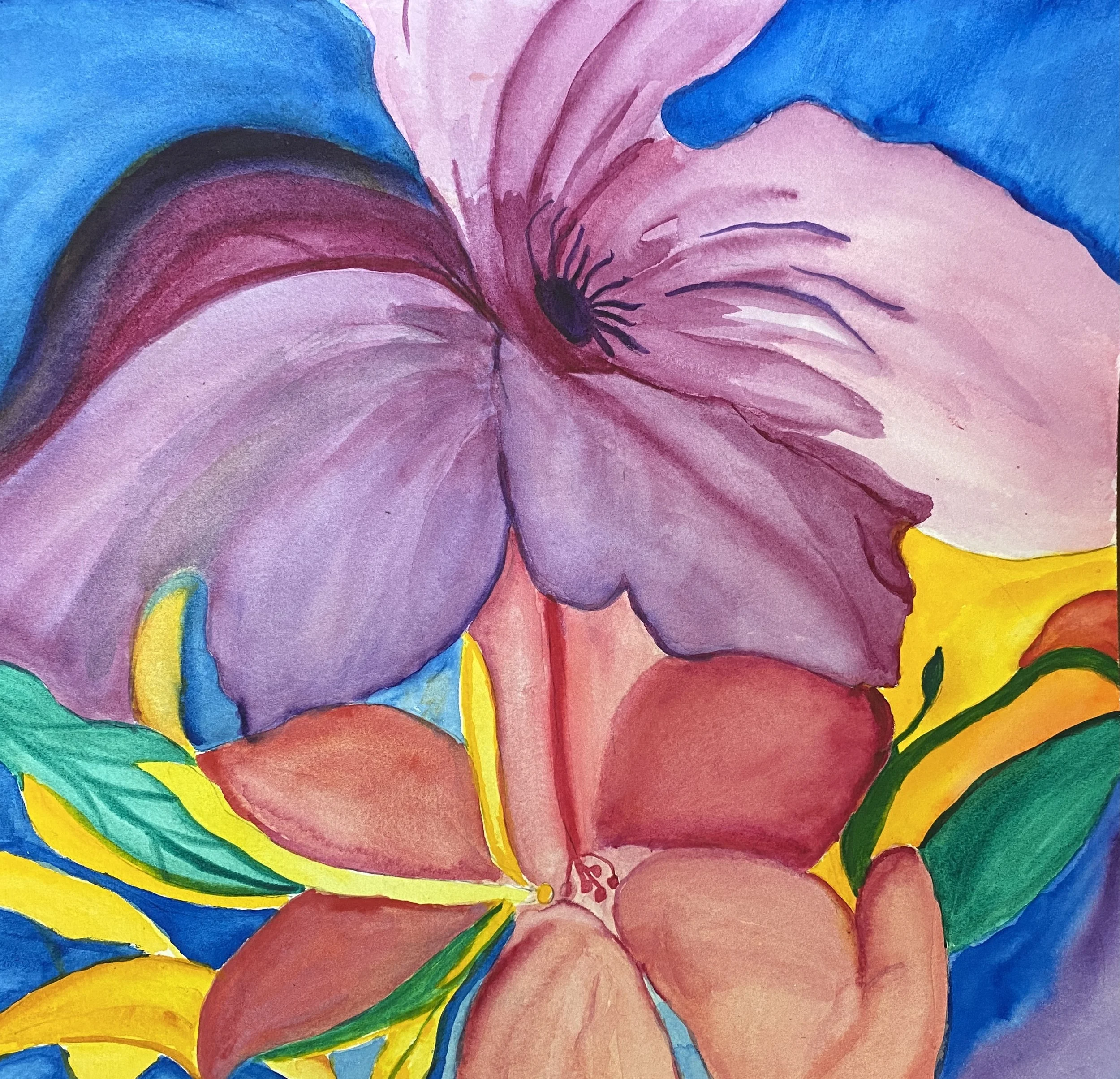Trauma Informed Treatment for Cannabis Addiction: Self Compassionate and Affirming Tools for Recovery.
Addiction: Addiction is defined from the Latin meaning as ‘to surrender to something’ or ‘to be fixated on’
In recovery many people surrender to the fact that they cannot cease the use of cannabis and stay stopped on their own, especially through willpower. Willpower fails over and over for most cannabis addicts; despite multiple attempts and the most sincere intentions to control the use. Most people usually need some type of assistance: such as a recovery community through some type of self help group and/or support groups with-in the setting of a professional addiction medicine treatment center. The opposite of addiction is connection; there is power of one addict helping another addict or the loving unconditional support of a trained licensed clinician. The powerful significance of a group of addicts who share a common fixation or problematic relationship with cannabis can ease the common feeling of isolation which active addictions fosters. Listening to other peoples stories maybe helpful for some people such as breaking the barriers of isolation and hearing common stories of behaviors of active addiction. However for other people being in a social environment is triggering and over stimulating as is not helpful. Especially those with social anxiety, mental and emotional health challenges or who are on the neurodiverse spectrum.
Some people who are in recovery or seek recovery for cannabis addiction also have a history of trauma and/or other mental health challenges.
There are many modalities to treat trauma. Trauma informed therapies are more and more readily available to us. The term ‘Trauma Informed’ has even become a biz word. However, this is very vague. Addiction Medicine is focused on helping people detox from their substance and being free from active addiction. Many psychotherapists do not have intensive training in addiction medicine. Although this is changing and more and more therapist will agree that for a person to dive deep into trauma thearpy they first must be clean and sober from active addiction or chronic substance use. This is first and foremost pathway to healing trauma and has become a more common practice for people in recovery in the twenty first century. The intersections of addiction medicine and trauma modality treatment through psychotherapy still need less gaps.
Many people are familiar with the 12 steps for addiction, however many 12 step programs and/or programs for addiction do not include trauma informed treatment. Rightfully so, as twelve step and self help programs are self help programs and non professional in nature. In fact people usually hear very little about treatment modalites for underlying trauma which could have lead to the active addiction itself. After all the cannabis use, drug use or eating disorder is but a symptom of the root underlying issues. People may hear about these specific underlying issues in self help or 12 step meetings but only through peoples personal stories and 3-5 min shares.
Some people use the 12 step model or other self help models such as Buddhist Recovery or She Recovers or Women For Sobriety to process the trauma. In reality due to the nature of self help groups; these groups has been an adjunct modality to assist in the healing of trauma for some addicts.
The variable Self help groups and/or 12 step meetings offers types of cognitive behavioral therapy. Going to meetings regularly, staying absent from the substance is a way of creating new habits and replace active addiction with a new positive cognitive and behavioral practice. Two examples: In Women For Sobriety they read specific affirmations to enforce a persons daily intentions of recovery and being clean and sober. In 12 step recovery they will read the 12 steps as a type of blue print for a suggested recovery modality.
The main thing that is consistent in the step help and 12 step groups is consistency. When a person engages in repeated structured social engagement such as a intensive out patient program or attending 30 or 90 meetings in 30 or 90 days the repeated and consistent behavior changes the neuropath ways of the brain.
The chronic cannabis habit is replaced with new thoughts and perceptions: free from active addiction. When an addict is using and inactive addiction, they often rationalize and minimize their use, and this is denial. The longer someone is able to stay free of active addiction the denial dissipates and their relationship with cannabis (substances) begins to significantly change. They have little or a lot less cravings and even are repulsed by their old way of thinking and relating to cannabis. A personality and character transformation begins as the recovering cannabis addicts start to create a new social support network: a sober community with other addicts; as well as developing emotionally intimate relationships. Some people can thrive in a small community of recovering cannabis addicts in their new found communities. Other people find groups challenging for a variety of reasons.
New behaviors and new cognitive perceptions begin to slowly replace the chronic mental obsession and physical compulsion to use cannabis. Cannabis addicts begin to physically and emotionally stabilize after the first months of the initial withdrawal; usually 45-90 days. Then past 90 days there is a post acute withdrawal (PAWs) phase that can take up to a full two years for emotional and psychological stability. Regulation of the nervous system begin to increase in duration of times. Fluctuating moods and extreme emotions decrease as people utilize effective copping skills. People tend to become employable or able to complete educational and career endeavors. They’re able to be more present and emotionally available for intimate relationships and family relationships: as well as overall become a productive member of society.
However, the majority of people seeking treatment for cannabis addiction still continue to have a difficult time with the Post Acute Withdrawal past the 45-90 day period of absence. PAWS can be characteristic of emotional instability stages ( ups and downs from moderate to severe) lasting 18 to 36 months past the initial acute detox (30-60 days) . Even with long term recovery (5 plus years) people are prone and vulnerable to symptoms of PAWS when going through stressful events or emotional episodes. We often hear of relapse at 10, 15 and 25 plus years due to deregulation of emotions that leads to physical relapse. When a person has underlying trauma and other challenging mental health issues self help and 12 step modalities for treatment may not be enough. These individuals may very well need professional (outside) assistance. Learning specific regulatory skills through a professional therapist is very beneficial. Therefore, to ensure substantial long term emotional and psychical sobriety many people need to seek professional and/ or consistent assistance.
Recovery is a process and not an event. Recovery is progressive much in the same way we label addiction as progressive. From the very first day that an addict choices to put down cannabis and/or begins therapy, attends their first self help or 12 step meeting and/or attend a treatment program: the recovery process begins. Intensive out patient programs in Addiction Medicine assists individuals with education of addiction the bio psychological and social aspects of addictions. In most all recovery programs it is customary that each and every time people relapse they are expected to reset their day count back to day one. While, this practice is essential for accountability and rigorous honesty; It can also lead to further relapse and shame and embarrassment. However, it is also essential to validate and recognize and empathize accumulative clean and/sober time for these individuals. Active addiction and relapse is already riddled with self defamation, embarrassment, shame and humiliation. This is one of the biggest challenges for people in recovery.
How do people remain humble and teachable while also be responsible and accountable for one’s own recovery? All at the same time practice gentle compassion with one’s self and others in recovery. Addiction is riddled with shame and self blame. I like to reframe shame as it relates to addition and trauma; ‘letting go of the old shame that doesn't belong to us.”
Relapse is very common; perhaps even more common than long term continuous sobriety: especially among cannabis addicts. There is an unspoken high rate of relapse rates within the population of cannabis addiction; the elephant in the living room of most all recovery groups. Complex , severe and chronic PTSD as well s other mental health challenges affects the ability for people to maintain long term continuous sobriety. Complex or chronic PTSD and or other mental health challenges is one of the major underlying reasons why people relapse. This is true especially among non white people, women, lesbians, gay men, bisexuals and gender fluid identities.
The fact is the 12 steps of any program (AA, NA, Alanon, ACA, MA) are stepped in white, male, Christian (Protestant) patriarch language and theory. Perhaps the language and concepts maybe more applicable and assessable for the heteronormative, anglo and/or middle and upper class populations? After all is this not the majority population who write and re write 12 step literature? Are these not the majorities of the represented and presented recovery stories in these dominant recovery functions? On the other hand others can ague that twelve step programs are not dogmatic and the 12 steps and modalities of 12 step recovery are merely suggestions. More contemporary and progressive recovery people have the freedom to redefine the working of the steps in a more self affirming and self respectable manner; letting go of anything that feels shaming, punitive judgmental and critical. However, other people can’t seem to get past the Christian God centered Patriarchal language when they attempt to give 12 step programs a chance.
When people relapse in 12 step programs it is sometimes compounded by a righteous patriarchal christian and often punitive language. A common 12 step dialogue that often blames the addict’s behavior or is critical in one way or another of what the addict did or did not do that contributed to the relapse. A language that often reinforces self defamation and shame for not doing or working the ‘program right’ or as ‘suggested.’ the common belief is that relapse occurs when people don not attend enough meetings, have too much ego and not enough humility, did not use the tools of the program, didn't work a fourth and fifth step good enough, had too many resentments, or simply they couldn't let go and surrender completely. Anonymity is considered the back born or one of the the spiritual principles of the program yet it is often heard by longterm members (who may have never had the experience of a physical relapse) to state harsh critical words about other members; ‘they didn't do the a certain steps thoroughly . . . that’s why they relapse. They were still running the show, self will run riot and wouldn't take suggestions and/or direction; that's why they relapsed.’
The fact is we don’t really know why people relapse other than they are addicts. Complex trauma and mental health challenges is a major factor. In the rooms of 12 step and other self help groups relapse occur often and consist. The fact is that a majority of the population of any substance abuse treatment program will relapse which has been consistently documented by addiction medicine research statistic’s report. Cannabis addiction is not different. However, it occurs more often among cannabis addicts because relapse is often thought of as benign and not having immediate adverse consequences like alcohol and other harder core substances. People with complex and/or chronic post traumatic stress disorder or other mental health challenges have complex and even fragile recovery. Recovery and sobriety that is not so lineal and straightforward as the less common peers who did not experience complex and/or chronic PTSD or mental health challenges.
Many under represented populations such as non white people, women, lesbian, gay men, bisexuals, differently able bodied and people with gender fluids identities are affected by complex issues and experiences. Even more so than their heteronormative, anglo and middle class peers. These issues including social, economic, racial, ethnic, and sexual inequalities. These issues significantly impacte recovery efforts and which in turn necessitate eclectic and innovative treatment modalities.
Trauma and mental health challenges as well as being a maginalised person can and have fractured secure relationships therefore building secure relationships in recovery has been a significant and rewarding.
These are common underlying issues that lead to cannabis addiction.
There are many treatment modalities for healing and treating a wide range of addictions; Women for Sobriety, SheRecovers Foundation, Refuge Recovery, Moderation Management, Celebrate Recovery, Rational Recovery, Smart Recovery, and 12 step programs (see resource page/tab on this website) Some are professional and some non professional. All are different methods of staying free from substances; inculding cannabis.
©Freedom from Cannabis addiction is an intentional space and online platform dedicated to the visibility and collaboration of people who have similar experiences with cannabis addiction and recovery.
We also are committed to the experiences of those of non white people, women, lesbian, gay men, bisexuals, differently able bodied and people with gender fluids identities All people, women and gender expansive identities are celebrated and honored. As we recover from cannabis, many of us are also healing from complex underlying issues which led to our dependence and addiction to cannabis.
Addiction: Addiction is defined from the Latin meaning as ‘to surrender to something’ or ‘to be fixated on.’
Cannabis use disorder or cannabis addiction can be described as a Mental and obsession, emotional fixation on the cannabis drug itself and the physical compulsion to use cannabis through out the day, perhaps even multiple times a day; despite an intent to use it only use once after work to help relax.





